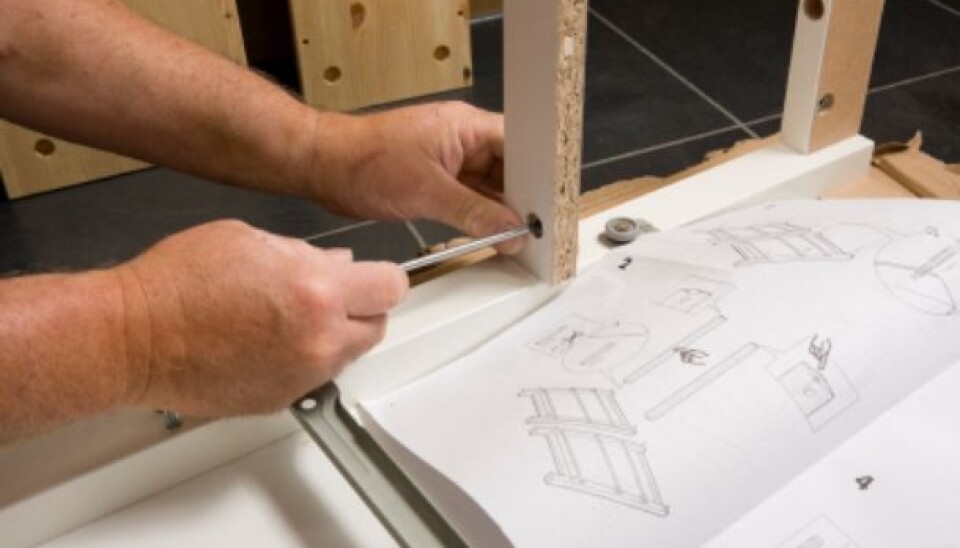This article was produced and financed by BI Norwegian Business School

Customers do the work – and love it
Customers are more appreciative of services they have personally participated in producing.
Denne artikkelen er over ti år gammel og kan inneholde utdatert informasjon.
Cost-conscious managers consider engaging customers to do part of the job in order to save costs.
Market-oriented managers consider engaging customers to create increased customer-supplied assets.
Why do we consider our own ideas and proposals as being better than others? Professor Dan Ariely at Duke University calls the phenomenon “The IKEA Effect” and the “Not invented here” syndrome.
Ariely’s own experience with putting together an IKEA bureau made him feel prouder of this piece of furniture than other pre-assembled furniture in his home. Experiments he conducted suggested that this was a common reaction.

When people are engaged in the value creation process - co-creation, they appreciate the final result more than similar ready-made solutions from others.
Five areas where customers can participate
What does co-creation really mean? When customers engage in the value creation process, this enhances their preferences and attitude regarding the final product.
This is important in connection with innovation, relationship-building, and repeat purchasing.
“Engaging customers as co-producers can be a good market strategy. But what tasks do the customers appreciate most?” asks professor Tor W. Andreassen at BI Norwegian Business School.
Professor C. K. Prahalad has previously defined five elements that customers could contribute to in their role as co-producer:
1. Physical and mental engagement in connection with advertising
2. Customer’s active use of self-service technology
3. Customer experiences
4. Customer involvement in problem-solving
5. Customer options for tailoring the service
Study of people traveling
The research project Value-driven Service Innovation at BI Norwegian Business School has examined whether all five elements are equally important for the customer’s willingness to be co-producers.
Or are some of the five elements more value-enhancing than others? And are there elements the customer does not want to be involved in at all?
With this in mind, Andreassen, together with Professor Anders Gustafsson at BI conducted a survey of a random sample of people who were travelling.
They were on their way to a central airport or waiting for the Airport Express Train. Four hundred travellers were selected, of which 300 submitted complete questionnaires (response rate of 75 percent).
The participants were presented with various scenarios and asked whether they would consider using solutions where they would do part of the job themselves.
One of the scenarios involved the following:
You arrive in New York, but your luggage is missing. You report your missing luggage at the airline’s service desk. They offer you the option of solving the problem yourself by using the company’s web page to report missing luggage and to check where the luggage is and when it will arrive.
Self-service and customisation
The study shows that two of the five tasks proved to be important factors in makeing the customers want to engage in the production of a service: self-service technology and customised solutions.
Self-service technology is important from a benefit perspective - e.g. saved time, increased convenience, while customisation is significant from a pure satisfaction point of view (I get to have things my own way).
The study also shows that customers certainly do not want to engage in solving any problems that might arise.
“Customers believe that when things go wrong, the company should get the blame. And the company then has to fix the problem,” write Andreassen and Gustafsson.
Pointers for companies
The study also found that the customers’ desire to be a co-producer was linked to a future intention to purchase or use.
On this basis, the BI researchers recommend that companies embrace innovation measures that involve the customers through technology in benefit areas rather than satisfaction areas. These areas include self-service solutions and ways in which customers can tailor their own solutions.
“Customers feel that this gives them added value. Then they also become willing to contribute,” says Andreassen.
-------------------------------------------------
Read this article in Norwegian at forskning.no






























